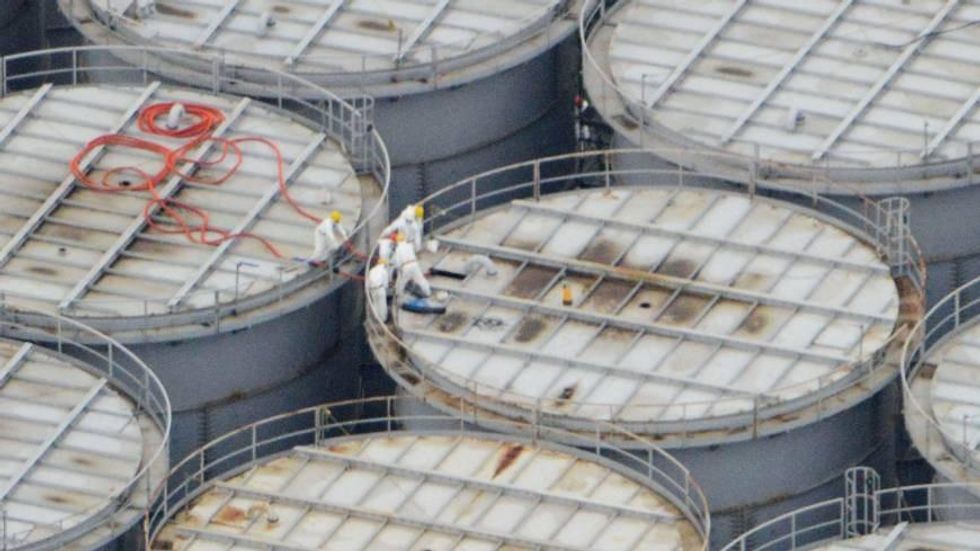In the most serious action since the nuclear plant was first damaged in 2011, Japan's Nuclear Regulatory Authority is on the verge of raising the international alarm--and the official threat level--over the spiraling crisis at the
Fukushima Daiichi plant.
By elevating the severity status from level 1 to level 3 on the eight-level International Nuclear and Radiological Event Scale (INES), the NRA has made a clear indication that the situation is worsening more than two years after the initial disaster and following recent reports of newly discovered leaks of highly radioactive water from several sources.
As Reuters reports, the U.N.'s International Atomic Energy Agency (IAEA) said on Wednesday it viewed the situation at Fukushima "seriously" and was ready to help if called upon, while nearby China said it was "shocked" to hear contaminated water was still leaking from the plant, and urged Japan to provide information "in a timely, thorough and accurate way".
Shunichi Tanaka, head of the NRA, told reporters that the plant has become an amusement park's house of horror, with newly discovered leaks and and repeated failings by the plant's owner TEPCO to make meaningful progress in the cleanup.
"I don't know if describing it this way is appropriate, but it's like a haunted house and, as I've said, mishaps keep happening one after the other," he told reporters. "We have to look into how we can reduce the risks and how to prevent it from becoming a fatal or serious incident."
As the Japan Times reports:
The NRA said about 300 tons of highly radioactive water has leaked from tank No. 5 in the H4 area of the damaged plant. In total, it said, the nuclear materials released into the environment has been estimated at several thousand terabecquerels, converted into radioactive molybdenum 99.
"This is comparable to level 3, given the standards for the radiation barriers and management of a facility," the NRA said in a document released Wednesday.
Raising the severity rating would be one of the most serious actions taken since the March 11, 2011, mega-quake and tsunami led to three reactor meltdowns.
"I'm concerned most about how such tanks with high levels (of radioactive water) are increasing rapidly," said Tanaka, referencing more than 1,000 water storage tanks now spread out around the crippled facility.
Though TEPCO said earlier this week, that newly discovered leak in one of the temporary storage tanks was an anomaly, other experts worry that it could be happening on a much larger scale.
According to the Japan Times, Tanaka warned that if another large tsunami were to hit the area, many of the tanks would be destroyed at once.
____________________________________________________




